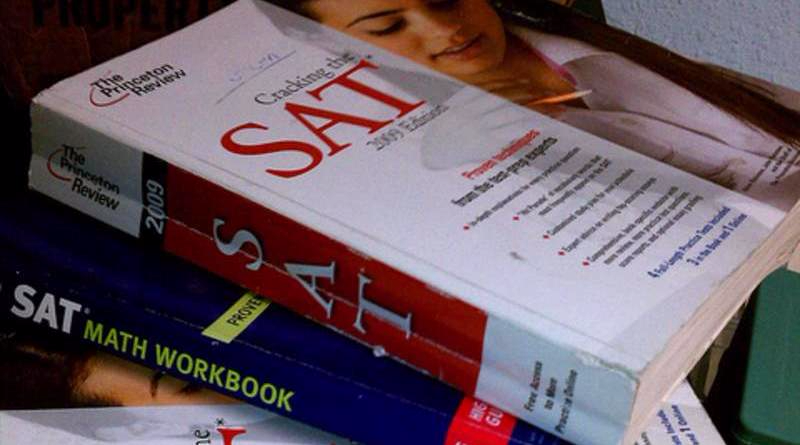The SAT and ACT exams are an important component of a college application, so if you are planning on attending college, it’s important to find and utilize the best studying strategies to get the results you want. No one wants to spend hours and hours studying just to find out that the score they received is nowhere near what they had hoped for. From techniques to timelines to personal testimonials, here are some of the best tips to preparing for the SAT and ACTs.
#1 – Consider a test prep class.
When studying for such a large scale exam, one of the most crucial components is efficiency. When studying for hours at a time, you have to make sure the time that you do spend studying is spent wisely.
As freshman Ashley Ye recommended, “I think a good study method for [the test] is to take a preparation class, because they make you practice intensely and prepare you well for the exam. However, some families cannot afford that, so a good study method for them is to rigorously study the test topics by themselves.” Professional and trusted classes that specialize in the exam you are preparing for, or even a private tutor, can be really beneficial and save you from having to slave over exam books trying to figure out problems on your own.
#2 – How about an exam book?
That said, exam books are also extremely useful, especially if physically going to somewhere to take a class is burdensome. “Personally, I just started preparing with prep books. For some people SAT classes are helpful others can self study,” explained sophomore Ummara Khan. Test prep books, if certified, are always reliable and very complete sources to study from as they have all of the updated information you would need and usually include tips as well.
A completely new format of the SATs was introduced in March 2016, and it’s important to note the changes that must be made when studying for these new exams compared to the previous ones. The main differences are in the new SATs are as follows: the notorious vocabulary section has been removed and the entire literary section of the exam is passage-based. These passages can range in topic from science to humanities to social studies, but all are explanatory, argument-based or nonfiction. The math section has also been divided into ‘calculator’ and ‘no-calculator’ sections, meaning that unlike the old one, 20 math questions must be answered without a calculator. Finally, the essay portion of the exam is optional and has been moved to the end of the exam.
An important consideration to make when studying for these new exams is ensuring you have up to date and new prep books. Certified and professional prep books are extremely helpful, but only if you’re using the correct ones. With the new exams came many new studying books, so it may be time to purchase a new version as your siblings’ books may no longer be the most relevant.
#3 – Look into Khan Academy’s online studying tools.
If private tutoring and lessons isn’t feasible but simply reading over test books isn’t helpful to you either, there are many online studying tools for the SAT and ACT that are completely free, such as Khan Academy. Their SAT test preparation course includes full length, downloadable SAT exams and step-by-step video explanations for difficult questions. Khan Academy also offers many tips and strategies for taking the SAT. They have partnered with College Board to include unreleased exam questions from past SATs. The only downside of Khan Academy is that it doesn’t entirely mimic the atmosphere of the real exam, and while there are full length tests available, most video tutorials are only 5-10 questions at a time. However, if you are looking for free lessons that you can take at home, Khan Academy’s SAT preparation courses can definitely be beneficial.
#4 – Determine whether or not you want to take the essay part of the test.
You should also determine whether or not it would be beneficial to you to complete the essay portion of the SAT. As it is now optional, figuring out if you actually need to study for the essay is crucial. Look into the recommendations or requirements of your prospective colleges; although the essay may be optional on the exam, certain universities still value it greatly and may require it. If you do decide that you should, or want to complete the essay, keep in mind that its format has also changed in comparison to the previous years.
The new SAT essay is very similar to typical college essays in that you read a text and write an essay analyzing instead of the personal experience and opinion based essays from before. An easy way to prepare is simply to read more nonfiction in your daily life. Biographies of famous figures, informational, or even historical fiction novels can all be extremely beneficial in helping you understand more formal pieces of literature.
#5 – Don’t rush your preparation.
Good scores don’t come from a few nights or even one week of cram studying. Take into consideration the number of hours you are able, or are willing to, spend on studying for these exams everyday. Dr. Fred Zhang of Prep Scholar recommends that if you can only manage to study an hour a week, you should begin preparing at least two months to eight months before your test date. If you can find time to study 10 hours a week, you can be prepared in just one month. While these numbers will obviously vary from person to person based on your studying method or personal habits, it’s important to have a rough idea of how long you should set aside for studying before the exam.
All in all, there is unfortunately no shortcut to studying for these exams. Always remember to have a set goal in mind, and don’t be afraid to aim a little high. Keep in mind the types of scores your prospective colleges would like and start there. Afterwards, preparation is just a lot of self motivation and dedication, but if you practice and study diligently, you will be able to achieve the score you want.














